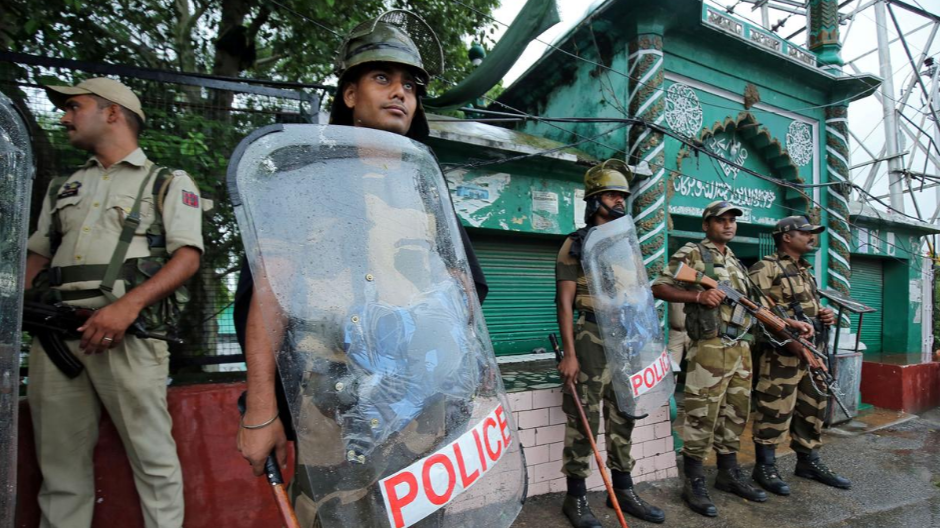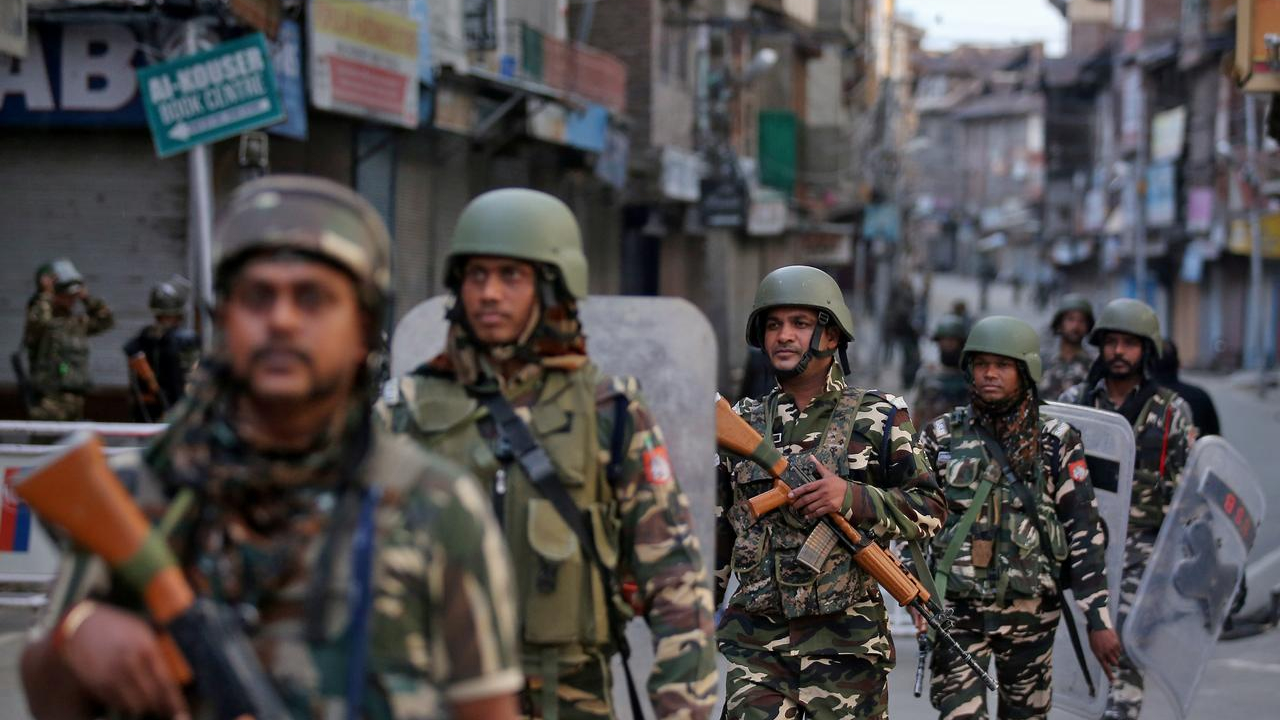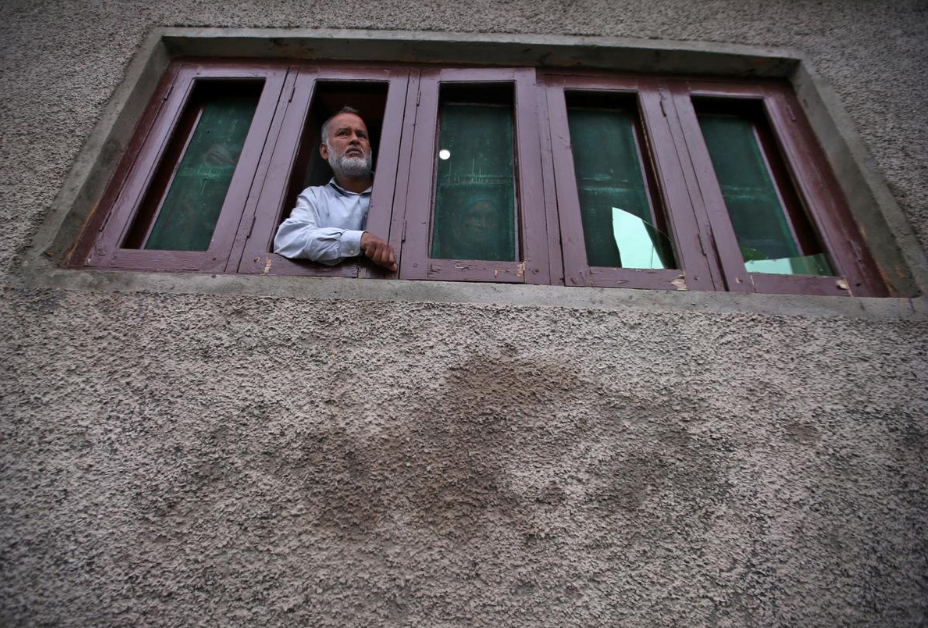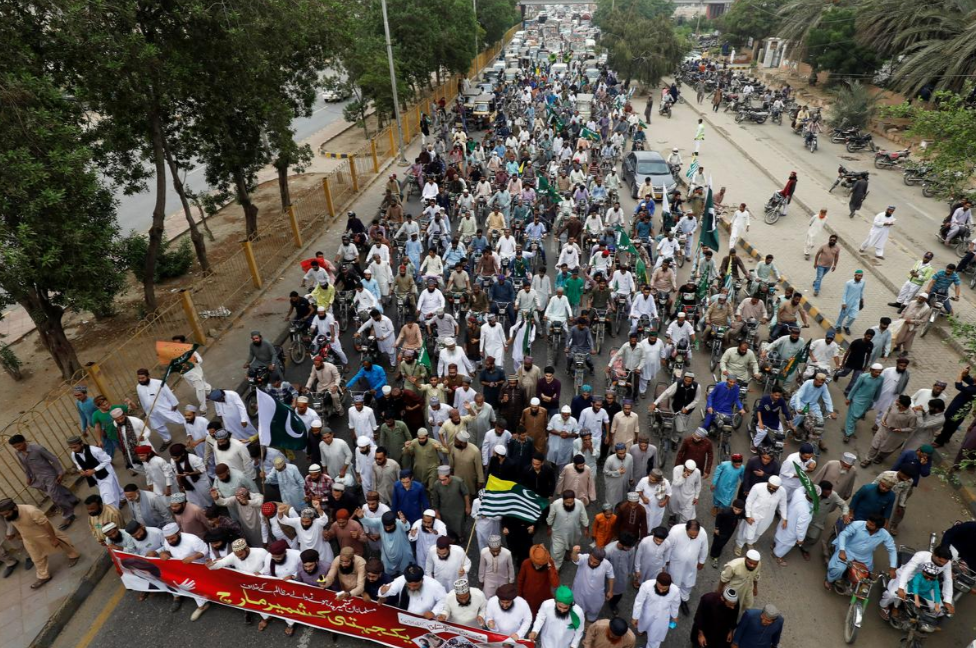

Indian authorities reimposed heavy restrictions on movement in major parts of Kashmir's biggest city, Srinagar, on Sunday after violent overnight clashes between residents and police in the restive Himalayan territory, which is divided between India and Pakistan but claimed by both in full.
New Delhi's shock decision to strip Indian-controlled Kashmir of its autonomy on August 5 has sparked public anger and frustration and there have been a series of protests in Srinagar attracting thousands of demonstrators over the past two weeks.

Indian security forces personnel patrol a deserted street during restrictions on movement after the government scrapped special status for Kashmir, in Srinagar, Indian-controlled Kashmir, August 9, 2019. /Reuters Photo
Chilly grenades
Indian authorities have previously denied or played down reports of any violence and stressed that most of Indian-controlled Kashmir has been peaceful, gradually easing massive restrictions on movement and a communications lockdown imposed two weeks ago. But clashes in a dozen locations around Srinagar over the past 24 hours saw restrictions brought back in parts of the city.
The heavy overnight clashes took place mostly in Rainawari, Nowhetta and Gojwara areas of the old city where Indian troops fired tear smoke, chilly grenades and pellets to disperse protesters, eyewitnesses and officials said.
Chilly grenades contain very spicy chili pepper, and produce a major eye and skin irritant, as well as a pungent smell, when they are unleashed.
The officials, who declined to be identified because they aren't supposed to talk to the media, said clashes also took place in other parts of the city including Soura, a hotbed of protests in the past two weeks.
In the city of Jammu, authorities cut mobile internet services on Sunday and warned locals not to circulate messages or videos on social media that they said were fake.

A Kashmiri man looks out from a window of his house which was allegedly damaged by Indian security forces after clashes between protesters and the security forces on Friday evening in Srinagar, Indian-controlled Kashmir, August 17, 2019. /Reuters Photo
Protesters injured
A senior government official and hospital authorities at Srinagar's main hospital said that at least 17 people came there with pellet injuries. They said 12 were discharged while five with grievous injuries were admitted.
Indian State government spokesman Kansal told reporters late Saturday that eight people had been injured in the clashes but did not provide further details.
A magistrate speaking to AFP on condition of anonymity said at least 4,000 people have been arrested and held under the Public Safety Act (PSA), a controversial law that allows authorities to imprison someone for up to two years without charge or trial.
Indian authorities have repeatedly declined to provide a tally of how many people have been taken into custody, apart from confirming more than 100 local politicians, activists and academics were detained in the first few days after the state was stripped of its semi-autonomous status.
But according to Reuters, at least 500 political leaders and activists remained in detention, and some have been flown to prisons outside the state.
Jammu and Kashmir government spokesman Rohit Kansal said previously there was "no centralized figure" for the total number of people detained.
They said the "few preventive detentions" were made to avoid a "breach of the peace" in a region that has fought an armed rebellion against Indian rule for three decades.

People carry flags as they march during a rally to express solidarity with the people of Kashmir, in Karachi, Pakistan, August 9. /Reuters Photo
International concerns
The Kashmir issue, a dispute born out of the region's colonial history, was a flashpoint of two wars and a spate of armed conflicts between India and Pakistan over the past 70 years.
The situation, which remained tense since earlier this year after the two countries exchanged airstrikes for the first time in decades, worsened once again following India's August 5 revocation.
India and Pakistan exchanged fire heavily across their border on Saturday, after a rare meeting of the UN Security Council was held late Friday for the first time since the Indo-Pakistan war of 1971.
Zhang Jun, Chinese ambassador to the UN, on Friday called for peaceful means to resolve the dispute born out of history.
"The Kashmir issue should be resolved properly through peaceful means in accordance with the UN Charter, relevant Security Council resolutions and bilateral agreement," said the ambassador.
"This represents the consensus of the international community," he added.
Pakistani Prime Minister Imran Khan on Saturday hailed the UN meeting, saying the "suffering of the Kashmiri people and ensuring resolution of the dispute is the responsibility of this world body."
(With input from agencies)

Copyright © 2018 CGTN. Beijing ICP prepared NO.16065310-3
Copyright © 2018 CGTN. Beijing ICP prepared NO.16065310-3